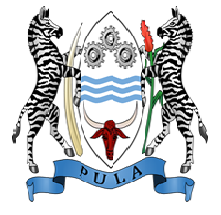Formerly the British protectorate of Bechuanaland, Botswana adopted its new name at independence in 1966. More than four decades of uninterrupted civilian leadership, progressive social policies, and significant capital investment have created one of the most stable economies in Africa. The ruling Botswana Democratic Party has won every election since independence; President Ian KHAMA was reelected for a second term in 2014. Mineral extraction, principally diamond mining, dominates economic activity, though tourism is a growing sector due to the country's conservation practices and extensive nature preserves. Botswana has one of the world's highest known rates of HIV/AIDS infection, but also one of Africa's most progressive and comprehensive programs for dealing with the disease.
Botswana is a parliamentary republic.
Source: CIA World Factbook
Members:
Resources
Displaying 46 - 50 of 57Land Survey Act (Chapter 33:01).
This Act provides rules for the survey of land in Botswana and makes provision for the appointment of the Director of Surveys and Lands, for the establishment of the Land Surveyors' Board and for the recognition of land surveyors and the control of their activities. The Act consists of 47 sections divided into 8 Parts.The Director of Surveys and Lands shall supervise and control the survey and charting of land for purposes of registration in the Deeds Registry and carry out other tasks imposed on him or her under this Act. The Land Surveyors' Board shall examine potential land surveyors.
Fencing Regulations (Chapter 33:03).
These Regulations prescribe, in the Schedule attached to the Regulations, forms for purposes of the Fencing Act. The forms concern: (a) notice to join in or contribute to the construction of a dividing fence; (b) notice of intention to fence; (c) notice of intention to repair a dividing fence; and (d) notice of intention to repair fence.
Implements: Fencing Act (Chapter 33:03). (2008-12-31)
British South Africa Company Land Act (Chapter 32:06).
This Act vests specified land in the British South Africa Company Limited and makes provision for certain rights of the Company, the President of Botswana and the Minister in respect of that land. Lands vested in the Company are specified in the First and Second Schedule. The Company may grant lands vested in property, mortgage or otherwise, provided that no occupation or ownership of any such lands shall be recognized as valid or legal unless a title has been granted to the owner or occupier in such form as the Minister shall prescribe.
State Land (Procedure for Enforcement of Payment of Levies and Loans) Regulations (Chapter 32:01).
These Regulations concern enforcement of payment of service levy imposed under section 5 of the State Land Act. The enforcement action may be taken on specified default (reg. 3). A Notice shall be issued on the occupier who defaults on a loan. The occupier may contest the Notice of default. The property of the defaulting occupier may be sold so as recover any defaulted payments. The Regulations also provide for an action of repossession of the plot of State land of the defaulting occupier. Procedures for such repossession are set out in regulations 6 and 8.
Tribal Land Act (Chapter 32:02).
The Act is divided into 13 Parts: Introductory (I); Land Boards (II); Application (IIa); Administration and appointment to land board service (IIb); Termination of Appointments and Retirements (IIc); Land Board Officers (IId); Offences and penalties (IIe); Land Board Service Commission (IIf); Grant of customary land rights (III); Grant of land rights under common law (IV); Land required for public purposes (V); Land Board Funds (VI); General (VII).There is established in respect of any tribe listed in the Fist Schedule a Land Board as a body corporate (sects. 3 and 9).


